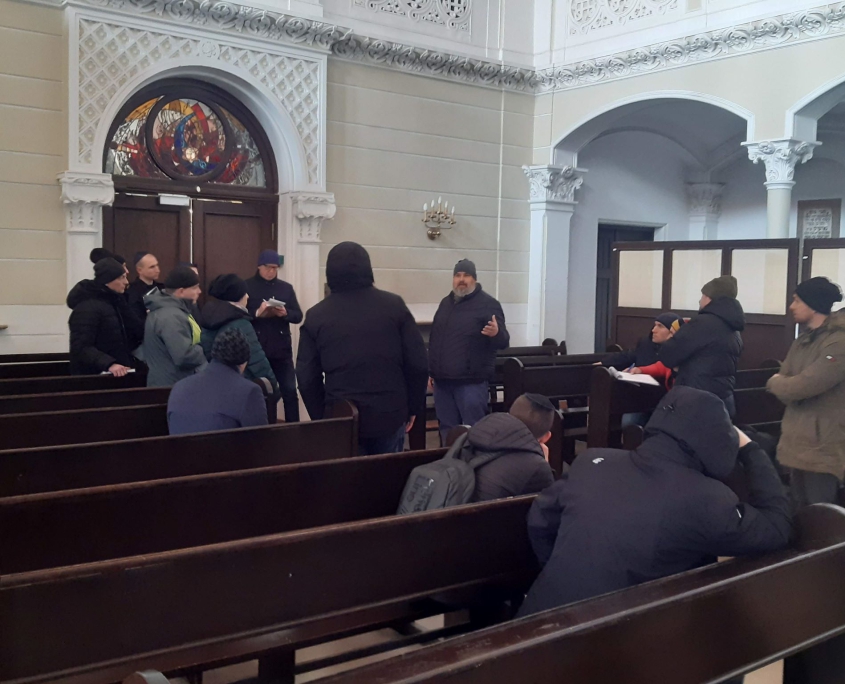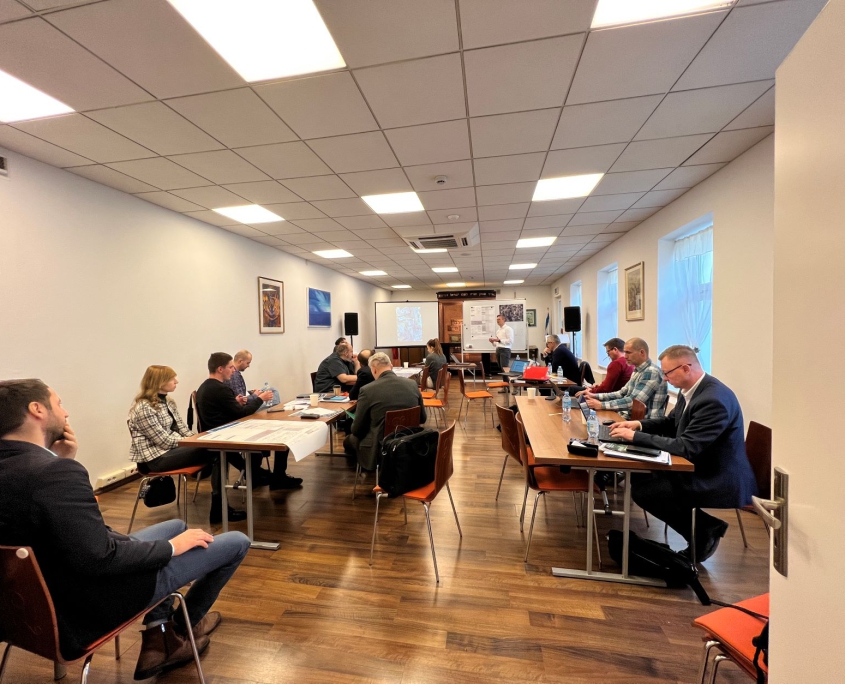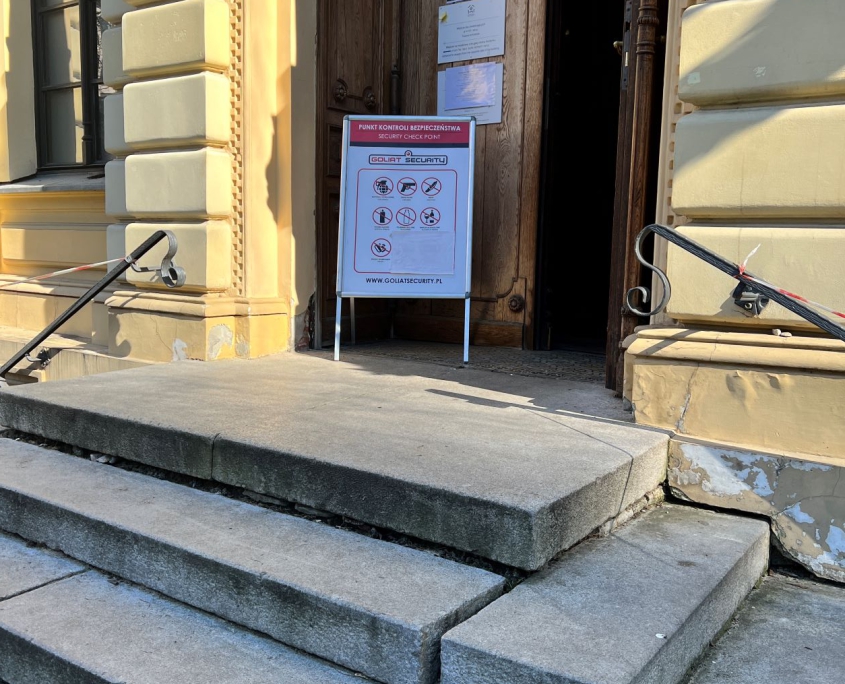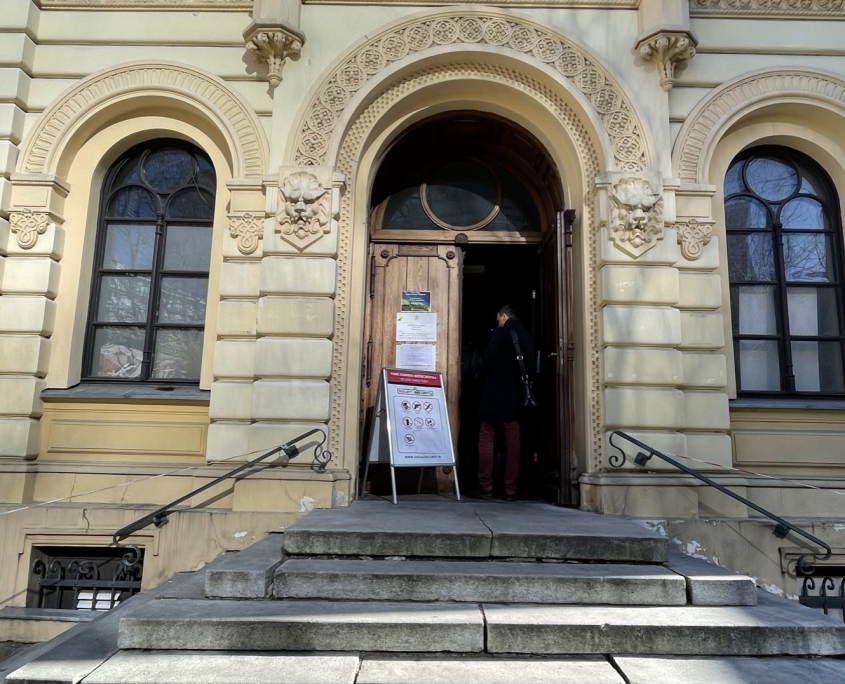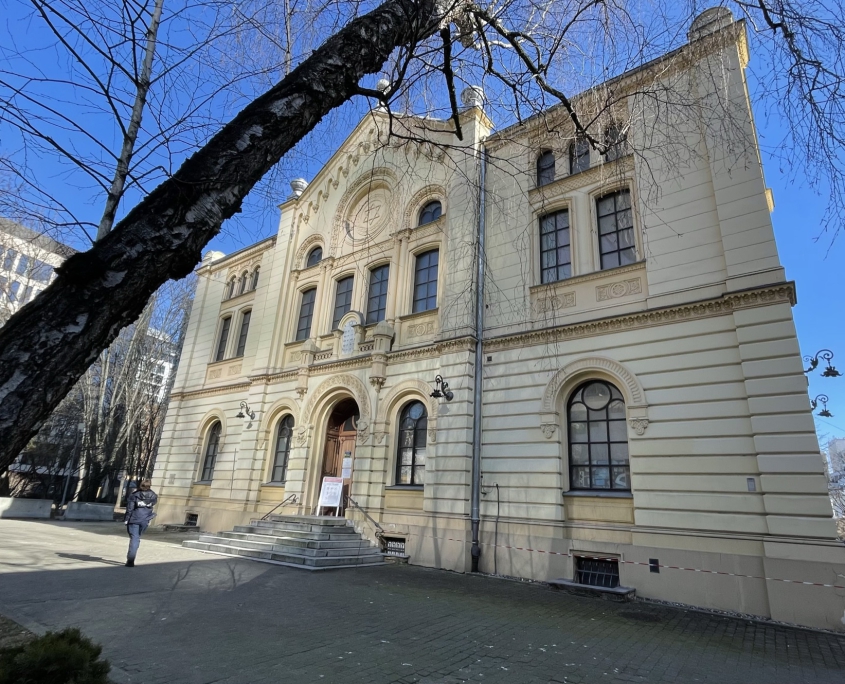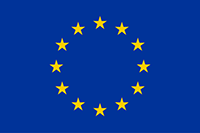Vulnerability Assessment Workshop in Warsaw, Poland 10th-11th March 2022
The third Vulnerability Assessment Workshop in the frame of WP2 was organized in the premises of the Jewish Community of Warsaw.
Following the approach applied in the previous VA workshops here again to complete workshop the experts used developed diagnostic tool based on EU Vulnerability Assessment Tool/Checklist and EU Quick Guide. This time the place of worship characteristic to Judaism – the Warsaw Nożyk Synagogue – was subjected to vetting and specialist evaluation. The workshop was organized by the Jewish Community of Warsaw, KEMEA, University of Lodz and Warsaw Metropolitan Police Headquarters.
During the visit to the synagogue, representatives of different backgrounds, ranging from experts in the protection of public places, terrorist threats, explosives and CBRN threats, to policemen, firemen and representatives of the Jewish religious community, discussed security measures implemented in synagogues.
The experts’ deliberations focused primarily on the possibility of applying modern and effective methods and measures to protect such places of worship from terrorist attacks. The development of effective solutions to improve the level of security in the synagogue was facilitated by the exchange of knowledge and experience among the participants, who focused on the applicability of the developed methodology of vulnerability assessment in religious facilities. The discussion on reducing the synagogue’s vulnerability to terrorist attacks was largely based on information obtained from the staff of the visited building.
After analysing the state of security measures and identifying weaknesses in the facility’s infrastructure, the discussion proceeded to develop potential attack scenarios and determine their possible consequences for worshippers. The lively discussion was accompanied by the completion of special questionnaires, which were developed for the purpose of the diagnostic tool used.
In the end, the participants formulated conclusions and suggestions for further development of both the assessment tools used and the measures that can be implemented to improve security in the synagogue.
The vulnerability assessment workshops that took place in Ioannina (Greece), Lodz (Poland) and Warsaw (Poland) will conclude with a summary report that will serve as a basis for further work on improving the security of religious sites.

